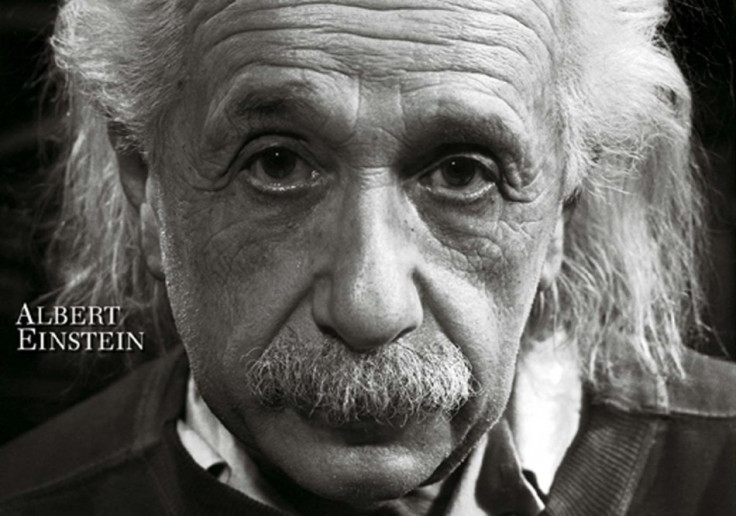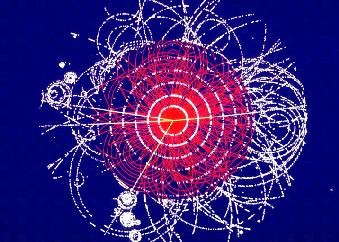A Grumpy Scientist's Guide to Bad Science Reporting [BLOG]
While I don't delude myself that science is the only area that suffers from shoddy coverage in the mainstream press, it certainly seems to endure more than its fair share.
Here are some of my own bugbears.
1. Boffins
So you've left school with a burning curiosity about how the world works and have a desire to add to mankind's understanding of it. You spend the next decade or so slogging through your Master's degree, completing your PhD, and starting on a research programme. After years of hard work and insight, you and your team uncover some new facet of knowledge, another brick to add to the edifice of our understanding of the universe we find ourselves in.
Which is reported in the papers as "Today, boffins claimed...".
"Boffin" is at best an affectionate term for the stereotypical academic, conjuring up an image of a dishevelled and absent-minded lab-bound professor who indulges in bizarre and obscure research, and at worst a disparaging term that belittles scientists and dismisses their utterances as the arcane and inaccurate pronunciations of alchemists, weather forecasters and economists.
Perhaps worse, it reinforces the tired old stereotype of the scientist as an exclusively male career. An experiment that has been reproduced many times asks primary school-aged children to draw adults in various careers - teachers, firefighters etc. The drawings of scientists are universally old, white, labcoat-wearing men, usually with wild Einstein-like hair.
In a time where many sciences are struggling to entice female students to study them, it really isn't helping that tabloids are helping cement the image of vital research only being carried out by fusty old men with elbow patches.

Of course, it doesn't help that the most famous scientist of the modern age looked like this.
2. 'Scientists baffled'
It's a common accusation levelled at scientists that they arrogantly claim to know everything. When they're portrayed in fiction they're often the pompous authority figure who dismisses anything outside his worldview that he (and it always is a he, Agent Scully notwithstanding) encounters.
In fact scientists love nothing more than a good mystery - the joy of understanding something new about the universe is the dragon that scientists chase, and encountering something new that no-one has seen or explained before is like finding a great big nugget of crack, if I can push the scientist/junkie analogy a little further than it probably deserves.
So whenever something new and unusual pops up, scientists won't generally be able to explain what it is straight away. After all, that's what research is for. Hypotheses have to be thought up, experiments designed, and results analysed before a tentative explanation can be presented.
This whole process, however, is usually summed up in the phrase "scientists baffled", which seems to be the stock response when an unambiguous and definitive description is not immediately forthcoming. The phrase is meant to imply that there are some mysteries beyond the ken of even these stuffy authority figures, and the reader is invited to experience the schadenfreude of these boffins scratching their heads and gnashing their teeth at their worldview being shattered by the wondrous mystery of an infinite universe.
Having said all that, "Scientists Excited and Intrigued at Possibilities Hinted at in New and Unusual Discovery" isn't quite as snappy.

This one genuinely had them stumped though
3. He said, she said
Also known as the Fallacy of the Golden Mean, which despite sounding like it should have "Harry Potter and the..." in front of it is a logical error whereby one assumes that the correct or reasonable position between two statements is somewhere in between.
This basically comes about because most journalists have humanities backgrounds. It's a perfectly reasonable thing to do to have opposing viewpoints when one is debating, say, liberalism vs conservatism, or welfare vs libertarianism. With opposing ideologies like these it's important to hear arguments from both sides, ostensibly so that an impartial and educated viewer/reader can weigh the opinions they hear and form their own.
This approach generally doesn't hold in stories about scientific or medical issues, however. The few genuine controversies in science generally don't make for interesting reading to the average layperson - not many people want to read about competing grand unification theories. The supposed conflicts that do make the papers - global warming, evolution, autism-by-vaccination - nearly always are not scientifically contentious at all.
Nevertheless, journalists always seem to believe that they are required to include a contentious voice to counter the expert, no matter how baseless their position is (brilliantly lampooned by The Onion here). So when the Large Hadron Collider was starting up a couple of years ago, a clueless dingbat in the US who believed that the collider could suck the whole world into a black hole in Geneva was given screen-time and newspaper column inches alongside particle physicists (ie, the people who actually know about this stuff).
But perhaps the most unforgivable example of this was the coverage of the MMR vaccine at the turn of the century, when a poorly run and morally suspect experiment performed by a now-discredited physician seemed to suggest a link between the vaccine and autism.
A sensible and responsible paper would have sought the opinion of leading medical organisations, and indeed the paper was very quickly criticised by experts. Nevertheless, equal time was given to a cavalcade of anti-vaccination cranks who were more interested in seeing immunisation ended than evidence. As a result, many parents were (and still are) scared off having their children immunised, which has led to outbreaks of dangerous, preventable diseases throughout the country. The "evidence" for the link between vaccination and autism has now been thoroughly debunked, but the occasional celebrity or alternative medicine proponent still pops up, waving the tattered remains of the discredited research paper as if it was still intact.
This "he-said, she-said" style coverage of science is closely related to the "Teach the Controversy" strategy employed by creationists in the US. The process is as follows:
1. Insist there is a scientific controversy on the Theory of Evolution
2. When the scientific establishment says, no, there isn't, state that since we're arguing about it, there must be a controversy.
3. Sow enough doubt into readers' minds that creationist text worms its way into school textbooks (something that worryingly seems to be happening here in the UK too).
Everyone is entitled to their opinions, of course, no matter how ill-founded and stupid they are. But that doesn't mean they deserve a platform to spout them all in the name of some notion of "balance".

I mean, you wouldn't have this guy on Newsnight, right? (By this, I mean the Monster Raving Loony Party leader)
4. The buried contradiction
This is the speciality of the Daily Mail and other such wretched hives of scum and villainy. In short, a study has its conclusions twisted and warped in such a way that they fit some preconceived narrative that the paper wants to enforce, even if the original study itself contradicts said narrative. However, to cover their arses, buried somewhere near the bottom will be a paragraph that gives the accurate findings of the research, safe in the knowledge that it will remain unread by the majority of their readership.
Compare and contrast the headline of this article with the fourth-to-last paragraph. According to the Mail, "Strict diet two days a week 'cuts risk of breast cancer'". According to an actual scientist, "This study is not about breast cancer, it's a study showing how different diet patterns affect weight loss and it's misleading to draw any conclusions about breast cancer from this research."
While the Mail's obsession with dividing all the inanimate objects in the world into things that cause cancer and things that don't is well known (check out the definitive list here), it ventures into questionable territory when it makes misleading claims about how to prevent it, especially when espousing medical advice that runs contrary to actual studies.
People can't be expected to track down the original paper in cases like these. It should be a medical or scientific correspondent's job to accurately summarise the findings of research, not twist it to resemble some miracle cure or scare story.
5. The God Particle
Probably not as important as 3 & 4, but here it is: it's not the God Particle, it's the Higgs Boson. Stop it.
While it may seem childish to squabble over a name, this one annoys a lot of physicists, and scientists in general. Very briefly, the Higgs Boson is the manifestation of the Higgs field, which permeates the universe and interacts with certain particles (such as quarks and electrons, which make up matter) to give them mass, while ignoring others (such as photons, which make up light), which remain massless, and zip about at the speed of light as a consequence.
Its apparent discovery early in July was a massive vindication of the Standard Model of particle physics, our current best understanding of how the basic machinery of the universe works. It is undeniably important, but it is not some kind of mysterious "super" particle that presides over all the others.
The unfortunate moniker that it is usually referred to in the media came about because of a book written about it by Leon M Lederman. He gave it the nickname "The God Particle" partly because it has proven so elusive to find, but also partly because his publisher wouldn't let him call it "That Goddamn Particle", a name he favoured due to the amount of money and effort it was taking to find it.
The name sometimes gives undeserved connotations of mysticism and spirituality to its study, and some people thought that there were explicit religious overtones to the apparent discovery. Shortly after the announcement, Twitter was awash with people posting variants of "Christians 1 : Atheists 0", as though it was a verifiable speck of God's bellybutton fluff that had materialised in the Large Hadron Collider, rather than the mediating boson of a hitherto hypothesised scalar field (some great examples here).
Oh, and it's pronounced "bo-zohn", not "bo-sun". One's a particle, the other's some guy on a ship.

If you squint hard you can see Jesus
Donald Sinclair is a former physics teacher and lecturer who now works as a medical physics researcher / imaging scientist in cancer research at one of London's top hospitals
© Copyright IBTimes 2025. All rights reserved.





















